
 o all the teachers who helped mold my overly enthusiastic, pathologically optimistic younger self into someone able and excited to pass on knowledge to those who will follow my path. I am forever in your debt.
o all the teachers who helped mold my overly enthusiastic, pathologically optimistic younger self into someone able and excited to pass on knowledge to those who will follow my path. I am forever in your debt.
Copyright 2015 by JESSICA HISCHE.
Preface text copyright 2015 by LOUISE FILI.
All rights reserved. No part of this book may be reproduced in any form without written permission from the publisher.
ISBN: 978-1-4521-4668-3 (epub, mobi)
Library of Congress Cataloging-in-Publication Data available.
ISBN: 978-1-4521-3622-6 (hc)
Chronicle Books LLC
680 Second Street
San Francisco, CA 94107
www.chroniclebooks.com

by Louise Fili
 remember the day well. In 2006, I received a series of promotional cards for The Twelve Days of Christmas.
remember the day well. In 2006, I received a series of promotional cards for The Twelve Days of Christmas.
The interesting style of illustration led me to take a look at the artists website: hmm, nice lettering skills there, too. Who was this person? All I could discern was that she was a recent art school graduate living in Philadelphia. I sent an email asking to see her portfolio. No response. Undaunted, I contacted her former professors at Tyler. This time I got an immediate answer: My first email had landed in her spam folder, and she could come to New York the following month.
In a month, did you say? So I waited. When that momentous day arrived, I greeted Jessica Hische at the door of my studio. She was carrying a portfolio that easily weighed more than she; I couldnt help but notice that the shiny wrapping paper was a Hefty trash bag.
Before I even finished looking at her work, I offered her a job.
Two weeks later, she moved to New York and started working for me. At the time, I was designing the cover for a book about Paris patisseries.
Jessica, can you make this look like a grossgrain ribbon tied in a bow, with type on it?
Sure!
Next, a guidebook to shopping in Morocco: How about embroidering the type, with sequins?
No problem!
Can you make type look like this lace?
By then, I didnt even have to wait for an answer. I actually didnt even need to ask the question.
She was fearless. Two months after meeting Jessica, I promoted her to senior designer, and her boundless energy and abilities continued to amaze me. They still do. It has been a pleasure to watch Jessica bring her talents to a much larger stage (which is to say, the world) for all to see and enjoy.

Four of the book covers I worked on with Louise for her client The Little Bookroom. Below them is lacey typographic art we created for the New York Times.
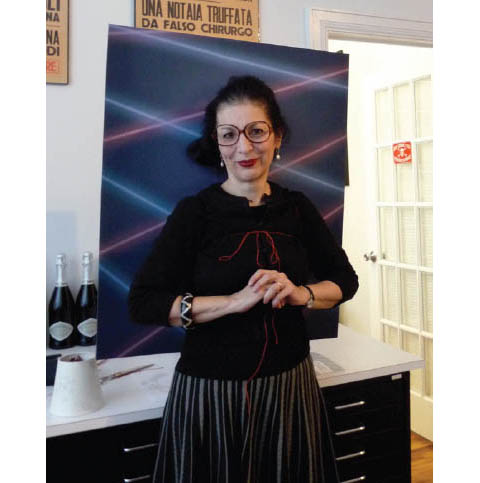
Louise wearing my Halloween costume from 2008, when I dressed as a school portrait. She put up with my antics with perfect grace.

 cant remember a time in my life when I wasnt driven to draw all day long. How I was going to make a career out of it, I had no idea; I didnt care.
cant remember a time in my life when I wasnt driven to draw all day long. How I was going to make a career out of it, I had no idea; I didnt care.
The daughter of a dentist and a scientist-turned-housewife, I met shockingly little parental resistance while declaring my love for the arts and dreams of being a painter, poet, or ceramicistwhatever medium was moving me that week. I think my parents were just happy to have a well-behaved kid with a fairly inexpensive and supremely time-consuming hobby.
I was raised in a relatively rural part of PennsylvaniaHazleton, to be precisea town not historically known for being a center of arts and culture. It was a good-enough place to grow up, and its given me a lifetime of small-town stories, most of which take place while loitering in various parking lots (Blockbuster, Walmart, Sheetz, etc.) or waitressing at the wonderfully horrible Greek diner I worked at in high school (the Blue Comet, lovingly referred to as the Blue Vomit).
While my childhood was happy and idyllicinvolving a lot of corn mazes, sports injuries, coloring-contest awards, and overly sensitive reactions to teachers criticismmy junior high to high school years were rocky to say the least. I think we all spend the entirety of our adult lives recovering from those few horribly awkward formative years. I became a bit of an academic underachiever, mostly because its impossible to commit any serious time to your studies when every moment of every day is spent trying to be popular. I devoted my whole self to being socially accepted by the highly preened proto-teens but never quite made it inId get invited to parties (a.k.a. drinking Zima and Jolly Ranchers in unsupervised basements) but would spend the night feeling uncomfortable and out of place. I rolled my uniform skirt perilously high, tried out for cheerleading (ending up on the gymnastically challenged outcast squad The Freshman Five), and skated by with high-mediocre grades in most of my classes. I was never a bad kid; I just wasnt the person youd have ever nominated for Most Likely to Succeed. Maybe I could have won Most Likely to Not Be a Total Screw-Up or Somewhat Likely to Get It Together, Eventually.
This all might seem tangential or anecdotal, but I just want to make it clear that I was not always such a motivated and work-focused person. I never lost my desire to pursue a creative career, but there was no possibility of doing so at Bishop Hafey High. Every attempt I made to steer my class schedule toward the arts was met with resistance. When I told the administration I wanted to go to art school, they told me I should instead take extra math classes, as those were more practical for college applications. The only art class I was able to take in my early high school years, led by a well-intentioned blues-guitarplaying former hippie, was populated by members of the football team looking for an easy A. I felt lost. Lost in both an institution devoid of artistic mentorship and my own fog of conflicting teenage emotions.
During this time, my parents separated and immediately transformed from Mom and Daddivine, omniscient creaturesinto normal human beings. It was a very tumultuous time that I wont describe in great detail because I love my parents and wouldnt want you to judge them for how they acted during their most difficult years (just as I hope you dont judge me for the nonsense I got into as a teenager). But I have to mention their divorce because it affected me so deeply. It started a fire in meI needed to become independent as soon as possible, to find myself and my voice. The more intense the drama was at home, the more acutely I focused my attention back on school and on developing real friendships. In junior high I fought so hard to be popular, to be included, but now I just wanted to be surrounded by people who accepted me for who I waspeople whose main attribute was kindness.
Next page

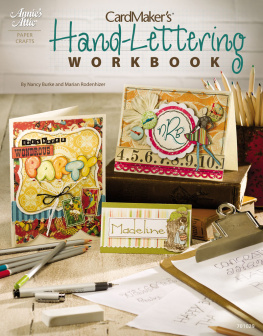
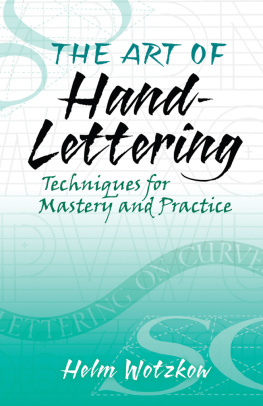
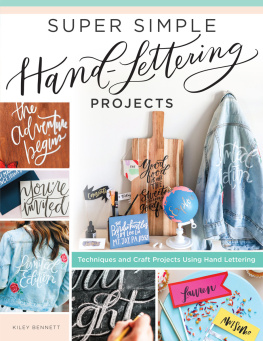
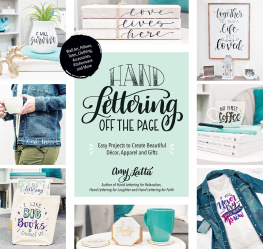
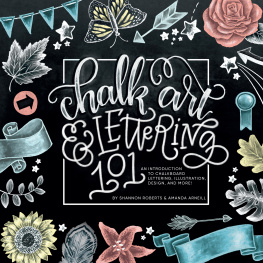




 o all the teachers who helped mold my overly enthusiastic, pathologically optimistic younger self into someone able and excited to pass on knowledge to those who will follow my path. I am forever in your debt.
o all the teachers who helped mold my overly enthusiastic, pathologically optimistic younger self into someone able and excited to pass on knowledge to those who will follow my path. I am forever in your debt.
 remember the day well. In 2006, I received a series of promotional cards for The Twelve Days of Christmas.
remember the day well. In 2006, I received a series of promotional cards for The Twelve Days of Christmas.

